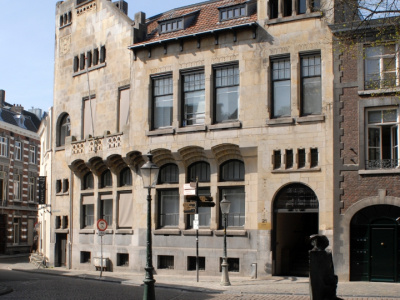
Linking the Tokyo International Conference on African Development with the EU-Africa Summit to Make Africa a Continent of Real Success
Development partners such as Europe and Japan should focus more on the human and community potential of Africa, not just mineral resources.
In 1973 Walter Rodney wrote in his book “How Europe underdeveloped Africa” that Africa today was underdeveloped in relation to Western Europe and a few other parts of the world and that the present position had come about, not by the separate evolution of Africa on the one hand and Europe on the other, but by exploitation.
A recent publication from the Japan International Cooperation Agency (JICA) on Africa begins with the headline “this is an age of dramatic and exciting change for Africa, with a population boom underway and many countries experiencing rapid economic growth. The years of stagnation and decline are a thing of the past, and a youthful and vibrant Africa is looking to the future with a growing sense of optimism.”(1)
Which one is true? Perhaps the right answer lies between the two: pessimism and optimism.
Africa – problems and potentials
Africa has long been touted as the continent of potentials. Now the potential has turned into reality. Its economy has grown at an average rate of 5% in the past ten years. Its population is expected to double by 2045. The world is watching Africa as the last emerging market in the globe.
Africa is not without problems. As its economy still depends largely on natural resources and the primary commodities, it needs to improve governance over natural resources and to ensure inclusive and sustainable growth.
The other challenge that Africa needs to tackle is how to strengthen its resilience to the external shocks such as drought, natural disasters and violent conflicts.
The TICAD process
39 heads of states from Africa, together with heads of international and donor organisations, including European Union (EU) Commissioner Piebalgs, gathered at the fifth Tokyo International Conference on African Development, or TICAD Five, held in Yokohama in June 2013 to discuss and hammer out concrete action plans for inclusive and sustainable development of Africa from 2013 to 2017 under the co-sponsorship of the Japanese Government and the African Union.
The TICAD process started in 1993 on the initiative of the Japanese Government in order to drum up international support for poverty and conflict stricken Africa at a time when Western donors were suffering from aid fatigue. The TICAD was not a one-off event. It has been held every five years since then and at each summit the progress in the preceding five years is evaluated and a new action plan launched.
The underlying spirit of the TICAD has been and will continue to be of African ownership. The TICAD is not a pledging conference. It is a forum where African wisdom and commitment are brought together with partner countries and organisations playing a catalytic role. The concept of the New Partnership for Africa's Development (NEPAD) was born out of the TICAD Two and Africa-Asia Cooperation was highlighted in the TICAD Three. The TICAD has served as a breeding ground for new initiatives for Africa by Africa.
In the TICAD Five, Japan committed to providing public and private support for Africa totaling US$32 billion. It is not all about money. Japan, together with other international partners such as the EU, will support African investment in its own people such as rural farmers, female entrepreneurs, trade and business youth and health workers through various training programs both in Japan and Africa.
African resilience
African people, particularly those in the rural community, are marvelous.
In 2006 and 2007 I visited around thirty villages in Malawi as advisor on the One Village One Product Movement (OVOP). The OVOP is an initiative for community-based business development that originated in rural Japan in the 1970s. Under the OVOP, each village is encouraged and supported to produce at least one product using local resources that can be showcased in the domestic, regional, and even the international market. Malawian villagers, particularly women groups, developed and marketed a wide range of products such as natural cooking oil, corn bread, fruit juice extracted from the baobab tree, milk and bamboo furniture with the technical assistance from Japanese community workers as well as micro financing from Malawi community banks. Out of the OVOP movement there emerged a number of community business groups who not only created rural jobs but helped vulnerable people in their community such as HIV/AIDS orphans and people with disabilities.
Africans are resilient and mutually supportive people. Rural communities often have more effective and participatory governance systems. If African development is based on such strong community foundations, then it will be more sustainable and inclusive. Development partners such as Europe and Japan should focus more on the human and community potential of Africa, not just mineral resources.
The EU will host another international forum on Africa in April this year. In this summit, the EU and Africa are expected to discuss in depth the three main themes; investing in people; investing in prosperity; and peace and stability, all of which can be taken from the 20-year stock of the TICAD process.
I am hopeful that Europe will enter into the new partnership with Africa with less historical baggage and more new ideas and inspirations. In doing so, Europe should remember that they are not alone. Asia and Japan are always with them to support global efforts to make Africa a continent of real success.
Aiichiro Yamamoto is an Associate Fellow at Friends of Europe.
Footnote
1. Africa: A Brighter Future. JICA's World, vol. 5, no. 2, May 2013.
This article was published in GREAT Insights, Volume 3, Issue 3 (March 2014)




